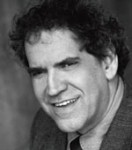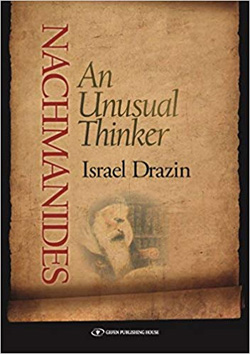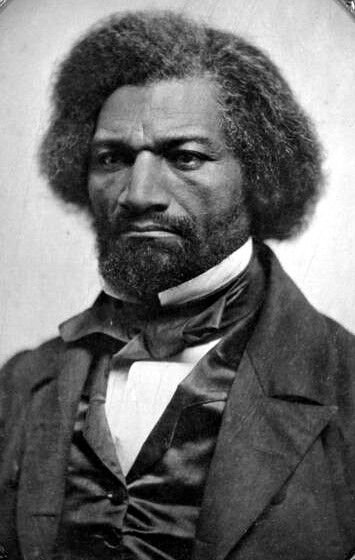
But the monsters I wish to comment upon are not the vampires or Frankenstein—but the disgusting creatures better known to us as “zombies.” These creatures project an image of ourselves that make us feel uncomfortable—a rotting corpse, reminding us about the power of death. Zombies have no redeeming qualities. Unlike vampires, you cannot have conversation with them at the dinner table.
A BRIEF HISTORY OF ZOMBIES
The history of zombies goes back to antiquity.
Archaeologists have unearthed many Greek graves, where skeletons were pinned down by rocks and other heavy debris intended to keep the dead in the grave. And while moderns generally view the idea of zombies with total disbelief, one might wonder what led to people believing in the idea that the dead are really, but mysteriously still “alive”?
Most myths about the human condition have a basis in fact.
When I was a child, I remember watching a film back in 1962 that scarred me like no other film I have ever seen, the film entitled, “The Premature Burial” was based on a short story written by Edgar Allan Poe, published in 1844 in The Philadelphia Dollar Newspaper. Its main character expresses concern about being buried alive. But were people buried alive?
Most certainly.
Physicians for the greater part of history oftentimes could not discern when somebody had actually, “died.” Someone in a deep coma was often believed to be “dead.” Perhaps this experience gave rise to the zombie and vampire movies and literature. Short of waiting for the body to decompose, the medical community had few means of certifying death, and the burgeoning press was quick to sensationalize any hasty pronouncements.
In my old community of Glens Falls, New York, you could see bells attached to graves dating back to the 18th century during the Revolutionary War period.
My interest in zombies has changed considerably over the decades. As a student of anthropology and religion, I wondered: If zombies are a metaphor, what do they represent in the human psyche? In one sense, these beings stand only at the periphery of human consciousness. In some ways, they are akin to people who are sleepwalking through life. The sleepwalker is hardly aware who he is and how s/he fits in the grand picture of life; nor does s/he know what his/her purpose is. Sleepwalkers and zombies merely react to life, instead of creating a life that is driven by purpose, creativity, and curiosity for higher truth and moral fulfillment.
From a Marxist perspective, zombies could be an apt metaphor for those who feel the emptiness of consumerism. Perhaps more than other monster, zombies characterize our most unthinking and relentlessly hungry selves. And the tragedy is no matter how much they consume, their desire for food can never be filled (they sort of remind me of being a hungry teenager).
In the literary mindscape of George Romero’s later film Dawn of the Dead, he purposely set the film in a shopping mall! He depicts his zombies pushing shopping carts around the mall, acting as though they are still alive. They live for only shopping. Is this not a disturbing image of our dystopian world that portrays modern society as a world that is driven by consumerism? It is astounding how the promises of consumerism even makes use of spiritual themes, such as the Golden Arches of McDonalds, creating an axis-mundi where human beings can enjoy the transcendental bliss of “becoming one” with what they eat.
In Romero’s films, his zombie walkers just want to have fun. And in a society where healthy spiritual values are no longer promoted in our schools and workplaces, we are a witnessing a generation that is spiritually “lost in space” and the monotony of daily routines has often driven young people to edge of despair and insanity—as we see in the plethora of school-shootings around the nation. For young people whose lives feels constrained by unemployment and debt, or those whose jobs are both unchallenging and routine, the zombie metaphor has genuine power.
George Romero’s later film Dawn of the Dead is set primarily in a shopping mall. Many of the zombies continue to push shopping carts around the mall and act as if they are still alive. Their prime remaining instinct is to shop. Though made in 1978, its vision portrays modern society as a world that is driven by consumerism; and its basic human instinct of “shop till you drop” – even if you’re undead – was prescient, and troublingly accurate about rapacious consumerism.
ZOMBIES AS A SOCIAL METAPHOR
I sense that part of the reason for the current fad for zombie walks, lies in an unconscious recognition of the way in which post-industrial, consumerist culture wishes to reduce us to narrow modes of identity. Yes, Romero’s zombie walkers want to have fun, but they also want to expose the ways in which society damages our sense of self. In an age where many lives, especially those of the young, are constrained by long-term unemployment, and many who have a job find it unchallenging and routine, the zombie metaphor has genuine power.
So, when you see the zombie walking in a shopping-mall near you, ask yourself: Should zombies be considered “persons”? Perhaps more importantly, what is the meaning of personhood in a modern society today? It is a question that pro-lifers have certainly raised with the status of the unborn, and it is a legitimate question considering how technology has revealed personality traits present in the fetus of twins, who carefully can be seen touching each other sensitively in ultra-sound pictures. Can the concept of personhood be applied to our pets too? Perhaps it is the denial of personhood in ourselves and others that the zombie metaphor reveals a phantasm of what it means to be fulfilling and self-actualizing.
ZOMBIES REVEAL OUR EXISTENTIAL FEAR OF DEATH
One could argue that the plethora of zombie depictions developed at a time when young people have witnessed some of the greatest horrors of modern life—such as the attack of 9/11. In addition, the baby-boomer generation is getting (unfortunately) increasingly older. Simply put, we are afraid of dying. Yet the Stoics have long taught us that people who tend to be afraid of dying are almost invariably afraid of authentic living.
To overcome our uneasiness about our mortality, we need to accept the fact that our mortality is a fact that we are already experiencing. In this sense, life is a series of continuous rebirths. The infant and child I once was has died long ago. Yet, each day that passes, I remind myself by saying the Modeh Ani prayer that today I am a new person. When I look at the mirror, I try to remind myself that I am more than just the sum of my physical body-parts. There is a profoundly spiritual dimension that must transcend our need and desire to live for consumerism.
A MAIMONIDEAN APPROACH TO OUR EXISTENTIAL ANSGST
Although Maimonides had no inkling of the idea of zombies, he did manage to develop an alternative approach that we ought to consider in our contemporary era. The central problem Maimonides grappled with is: How do we tell when we are asleep or if we are awake? Are we condemned to live our lives as if we were asleep?
For him, the best way to awaken us from the absence of purpose and spirituality in our lives is to pay attention to the sound of the shofar—as an instrument of raising consciousness. For him, the shofar works as an alarm. You could say that the sound of the Shofar is like an ancient form of shock therapy. Maimonides points out that the shofar was meant to stir people up from their sleep.
In short, recognizing the reality of our mortality need not paralyze ourselves with a morbid fear of the future. On the contrary, being aware that our time in this world is limited can offer ourselves the opportunity to really make a difference in the world without succumbing to the contemporary dystopian view of man as a mere consumer, or someone whose bio-footprint epitomizes the essence of our earthly journey in this world.
I believe the near-death experience has shown many countless people an alternative view of our ultimate destiny, but that is a topic for a future discussion and article.
Have a Happy Halloween with your children and friends!










